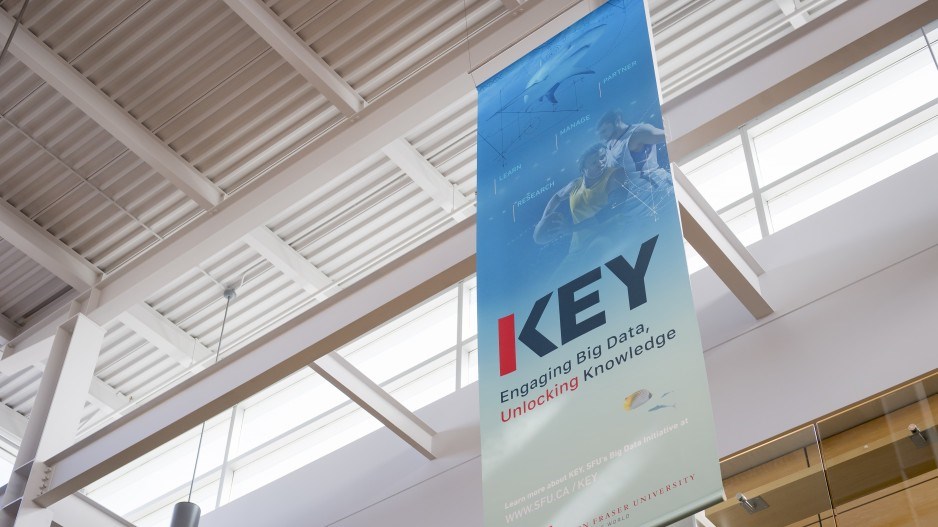The Canadian federal government has invested significant funds to develop superclusters in Canada, and Simon Fraser University (SFU) is a proud participant of the new B.C. Digital Technology Supercluster. The goal is to generate ambitious strategies for transforming regional innovation ecosystems. These will ultimately lead to major job-creating opportunities.
The B.C. supercluster’s focus on digital technology is fitting, given the province’s increasing resemblance to Silicon Valley. SFU and other research-intensive universities, for example, are teaming up with companies like Shoppers Drug Mart and Telus to create innovative projects.
Big data will feature prominently in the supercluster, says SFU’s vice-president of research and international, Joy Johnson.
“If you’re going to move technology forward, you really need strong data capacity,” she explains. “That’s the linkage between SFU’s university-wide big-data initiative and the supercluster.”
Early days
The Digital Technology Supercluster is in a formative stage. Industry members are identifying key projects to work on while universities are determining the assets, resources and qualified personnel they can bring to help solve some of the problems facing the digital technology world.
One initial area of interest is precision health – researching ways to make the health-care system better.
Says Johnson, “At SFU we are asking, ‘What are the emerging issues? What are the emerging problems?’ And how can we together lean in and start to address these problems?”
Responsibility and generating value
Johnson says one advantage of involving universities in technology projects is the critical thinking they apply when addressing whether there should be limitations to our approaches to big data.
“I think big data has had a bad rap lately. Concerns are mounting about privacy issues and who has access to personal data. People are very concerned about big data and I think that – especially for us at SFU – it’s key not to use data blindly, but to be asking those hard questions about ethics and security.”
Looking through a critical lens is a major part of a university’s role in both academic and industry projects like those that are part of the supercluster.
“I think this is such an interesting time,” she says. “We have companies like Google really interested in innovation and data. And I think the question is, just because we can collect this data … should we?”
The potential misuse of data is a critical consideration, she points out.
“I think it’s important to not go blindly and say all innovation is great and all data and technology use is acceptable.”
Big potential for big data
Surprisingly, around 90% of the world’s data has been generated in the last two years, according to Johnson.
“Right now, we have more than seven billion active devices in the world generating data, and that’s part of the connected Internet of Things,” she says. “So, it’s not just the devices, but the fact they are in many ways connected. We are awash in data.”
The supercluster offers an opportunity to harness the power of this large quantity of data for good, she says, noting that industries can use data to address serious issues such as climate change, the opioid crisis and mental health challenges.
“But we also have to understand that to do so is really complex and multi-layered, and we have to have that ethical lens. The aspiration is that, through the work of the supercluster, we will become a magnet for the digital technology sector.”
Johnson says B.C. is already recognizing this, and initiatives like the supercluster are key examples of how the province is beginning to resemble Silicon Valley.
“We are excited to be working with industry and post-secondary partners on the development of the supercluster and look forward to continuing to contribute to the B.C. digital technology ecosystem.”
Learn more about KEY, SFU’s Big Data Initiative at www.sfu.ca/key.




